TwoSides Simplifying Online Social Debate
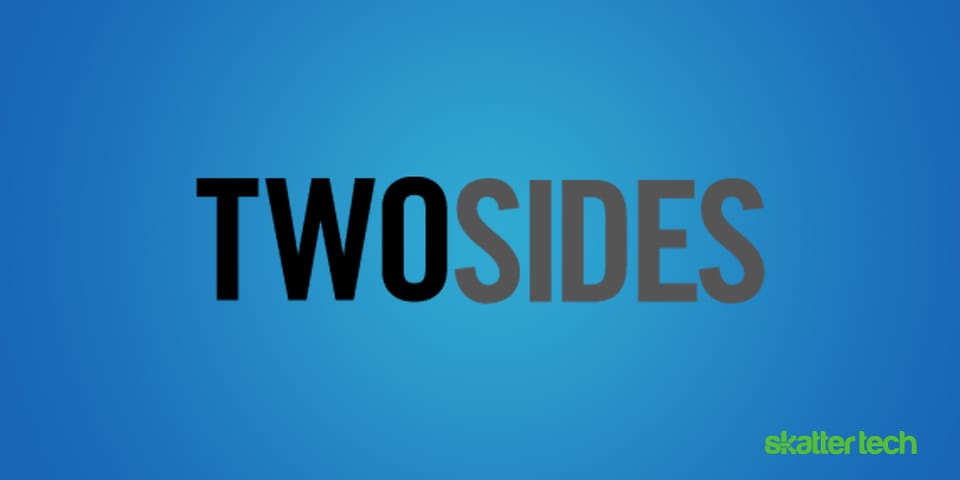
What does it mean to be an informed voter? To me it means to throughly research and understand all the different choices that I have as a voter. My research process involves reading articles from multiple news sources, listening to pundits on the radio, and watching talking heads on television. And each time my girlfriend asks what my view on a certain topic is I’m still lost, because I don’t keep track of everything I’ve researched and the argument quickly degrades to “where did you read that?” and “according to who?” Let those days be gone. Jono Lee, Eric Sue, and Ken Yu shared that same frustration and choose to start TwoSides to solve the problem.
They share their vision on the about page:
TWOSIDES is based on the fundamental idea that the world would be a better place if everyone looked at every side of an issue. A world where people are more informed, open-minded, and tolerant.
When I asked Jono how this idea came to him he replied:
TwoSides came to me in 2006, when I became 18 and eligible to vote. I was involved with politics in high school, so I believed voting to be a privilege and wanted to make sure I knew what I was voting for. However, I was appalled by how hard it was to find balanced information. Googling took way too long, television networks were always biased one way or the other, and articles often just told one side of the story. For example, 9 out of 10 voters in the recent midterm election thought they encountered information they believed to be misleading or false.
For four years this idea stayed in his head with the thought that someone else would make it.
I didn’t think much of it back then, as I truly believed this was a large enough problem that *someone* would come along and solve it within the next few years.
But in 2011 after he graduated from UCLA he realized no one had done it. At the time he was working with Eric Sue on another project, but they decided to work on this when they realized that it wasn’t really going anywhere. Six Four months, a lot of work, and an additional co-founder later, they have a working beta with a community of “informed, open-minded, and tolerant” individuals. His vision is now a reality.
Although they are initially focusing on Politics and highlighting the approaching 2012 Presidential Election with a special edition of the site, they have already seen debate taking place over many other topics.
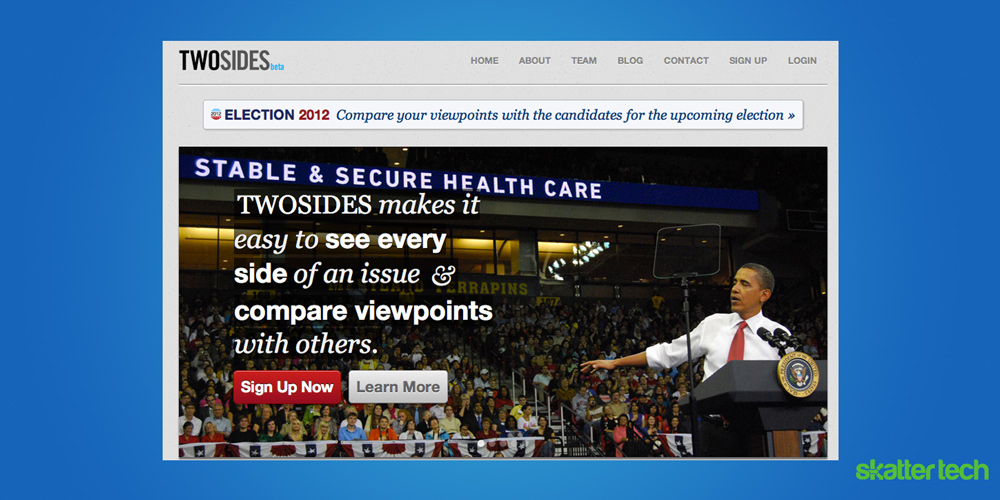
TwoSides displays different opinions as a pie chart according to which view has the most supporters. Users can support each of these views by adding evidence which can be a link, a personal testimonial, a quote, or a combination of all three. Users can comment on each piece of supporting evidence to debate its credibility or usefulness.
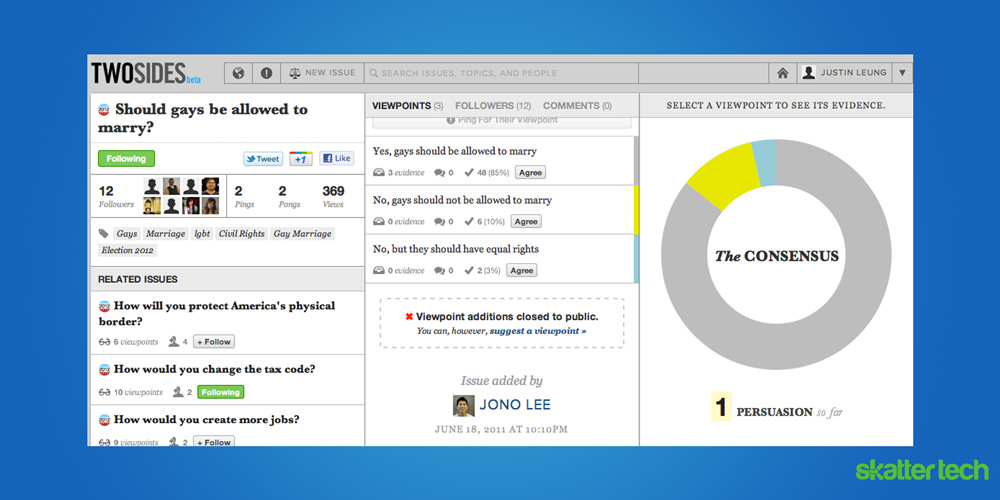
The evidence view shows a breakdown of how many people voted on each view.
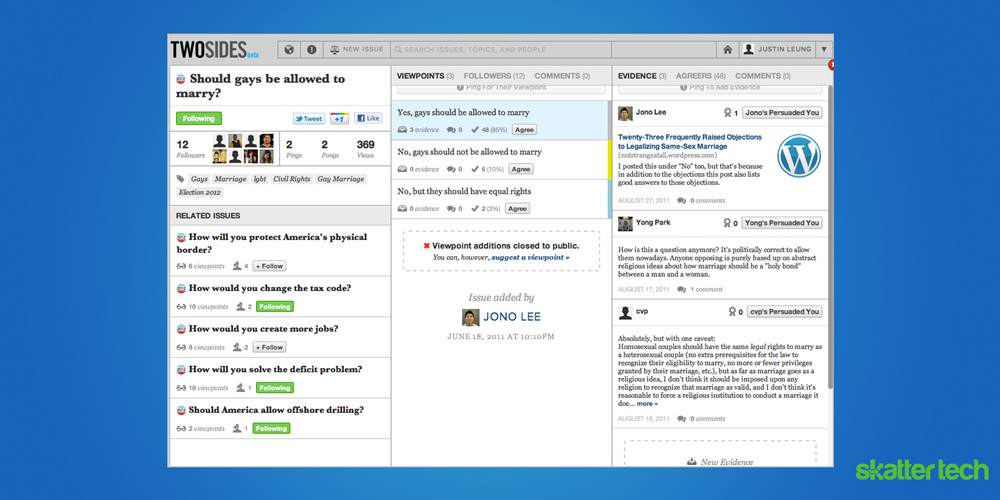
Viewing someone’s profile gives a general overview of their beliefs, contributions, and a comparison between your beliefs and theirs.
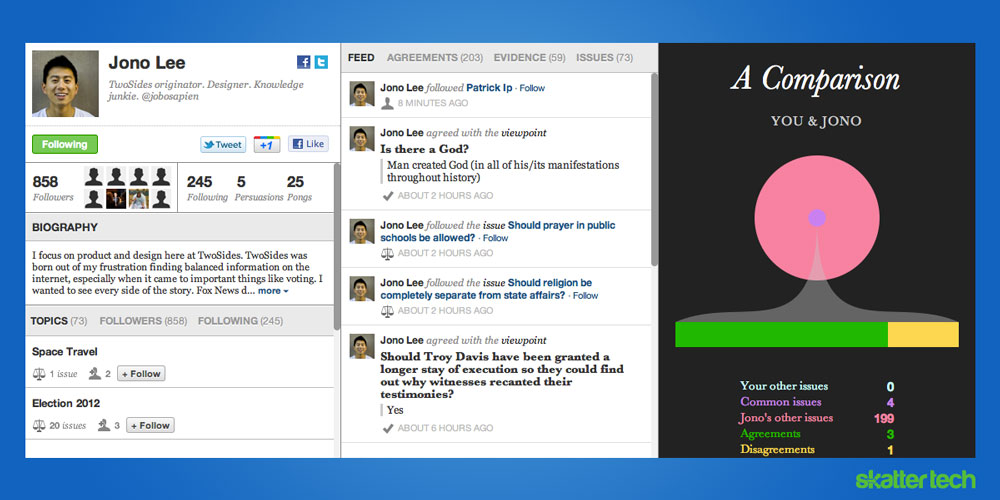
TwoSides is a welcome tool for the 21st century and is now one of my favorite places to hear and debate topics. It is not without its flaws though, like any tool on the internet. Some qualms I have with it are: the inability of users to discriminate between evidence and opinion, evidence without an explanation or summation of its relevance, and relatively small community. Still, I think TwoSides is a really well designed, powerful tool, that makes debating issues easier. I really look forward to its growth as a tool and community. I think that in the long run, this could be used to compare your own views with that of candidates seeking political office, as well as candidates understanding their constituency. This can also serve to help brands and companies cater more directly to their customers’ needs.
Links: TwoSides
Corrections 10/1/11 11:36pm : Ken Yu was a summer intern rather than a co-founder, and that they have actually only been working on this for four months instead of the previously stated six.